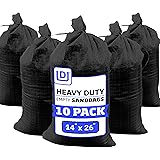Hey there! So, I want to talk about something super crucial when it comes to being prepared for emergencies: water storage. It’s often an overlooked aspect of prepping, but trust me, it can make all the difference. Let’s dive into the five major reasons why you should really put some thought into this part of your preparedness plan.
Access to Clean Drinking Water
Understanding the Importance of Clean Water
First things first, access to clean drinking water is vital for survival. Without it, your health can decline rapidly. I remember one time during a storm when the power went out for a few days. I was so thankful I had stored enough water to keep my family hydrated. Clean water is essential not just for drinking but also for cooking and sanitation.
Imagine being without water for even a day, let alone a week. You can only go about three days without it before severe dehydration kicks in. This is something we need to take seriously in our preparedness plans. It’s not just a luxury; it’s a necessity for life.
So, having a reliable source of clean water means you’re one step ahead in ensuring your family’s well-being, no matter the situation. Your body and mind will thank you!
Potential Water Contaminants
When disaster strikes—be it a natural disaster or an infrastructural failure—there’s a high chance that water supplies can become contaminated. Chemicals, bacteria, and other harmful substances can creep into your water supply, making it unsafe to drink.
In my experience, paying attention to how I store water has been game-changing. I always make sure to have backup supplies in food-grade containers. Simple measures like these can prevent you from dealing with serious health issues later on.
You wouldn’t want to end up with contaminated water when you’re relying on it the most. So, tap into the knowledge of safe water storage and keep your family protected from potential health crises!
Emergency Situations: Are You Prepared?
We’ve all seen those news clips—floods, wildfires, hurricanes. In an emergency, having water stored gives you peace of mind. I always keep a stockpile handy to avoid the mad rush at grocery stores when people panic.
== > What if ... Get a FREE Subscription to PREPARE
During emergencies, finding clean water can be incredibly tricky. Storing water isn’t just strategic; it’s smart! Whether you’re riding out a storm or facing a public water issue, knowing you’ve got sufficient supplies can really take a load off your shoulders.
Believe me, the sense of security you feel when you’ve prepared for the “what ifs” in life is just priceless. It’s like having a cozy blanket on a chilly night; it makes a world of difference!
Long-Term Water Storage Solutions
Choosing the Right Containers
Let’s talk about the nuts and bolts of water storage. It’s not just about having a pile of bottles sitting in your garage. The right containers are essential. I’ve tried different types over the years, and I’ve found that food-grade plastic buckets or large water tanks work wonders.
Always remember: avoid reusing containers that have held non-food substances, as they can leach harmful chemicals into your water. Investing in quality storage containers might seem like a hassle upfront, but it’ll save you a lot of trouble down the line.
Take it from me; nothing beats the feeling of knowing exactly where your water is coming from. You’ll be so glad you put the thought into it!
Filtration and Treatment Options
Even with stored water, you want to be able to treat it if something seems off. Water purification tablets, filters, and even boiling can come in handy. I keep a portable water filter in my emergency kit just in case. You never know when you might need it!
Learning about various purification methods has been incredibly helpful. A good rule of thumb is to rotate your water supply every six months. This way, you can ensure your stored water remains safe and fresh.
Taking the time to understand filtration options can be a lifesaver—literally. The peace of mind that comes with knowing your water is safe to drink is worth all the effort you’ll put in.
Creating a Water Storage Plan
Now that I’ve shared some insights, let’s put it all together! Creating an actionable water storage plan is essential for your preparedness strategy. I like to sketch out how much water I need for my family daily and plan accordingly. It’s a bit of a project but totally doable!
Your plan might include a specific number of gallons based on the amount you use daily for drinking, cooking, and hygiene. Having a clear strategy means you won’t be scrambling in a crisis.
With a solid plan in place, you can feel more in control. It’s like planning a great vacation—you wouldn’t just hop on a plane without knowing where you’re going, right?
Cost-Effectiveness of Water Storage
Saving Money in the Long Run
Investing in water storage may seem like a cost upfront, but it can save you a bundle in the long run. I’ve calculated how much I would spend on bottled water during emergencies and boy, it adds up!
By storing your own water, you can cut down on those last-minute panic buys that always seem to happen when disaster looms. Plus, not having to rely on purchasing water every time something goes wrong helps ease the stress on your wallet.
If you’re smart about it, it can be a great investment for both your health and your finances. Just think about how many times you’ll be grateful when you don’t have to run to the store in a panic!
Reducing Waste and Environmental Impact
Water storage also helps reduce waste. Instead of relying on single-use plastic bottles, you’re taking a more eco-friendly approach. I’ve begun to feel good about my choices as they not only benefit my family but also the environment.
When you store your own water, it’s a win-win situation. You can reduce plastic waste, while still ensuring your family has access to clean water. It’s these little efforts that add up to a big change over time.
Plus, nothing feels better than being part of the solution and knowing you’re making a difference, even if it’s just in a small way.
Emergency Preparedness is an Investment
At the end of the day, investing in proper water storage means investing in your peace of mind. It’s probably one of the best choices I’ve made when getting ready for emergencies. Every time I see my storage stash, I’m reminded of my family’s safety.
Preparedness can seem overwhelming, but having your water situation handled makes everything else a bit easier. You might even find it encourages a more proactive mindset about other aspects of preparedness.
So, don’t wait! Start your water storage journey now and reap the benefits. Just knowing you’ve got your bases covered is more than worth it.
Frequently Asked Questions
1. How much water should I store for emergencies?
Generally, a good rule of thumb is to store one gallon per person per day for at least three days. So, if you’re prepping for a family of four, aim for at least 12 gallons of stored water.
2. What type of containers should I use for water storage?
Look for food-grade containers; they’re the safest option. I’ve found that clean, food-safe plastic or glass containers work well. Avoid using containers that held non-food items.
3. How often should I rotate my stored water?
It’s a good idea to rotate your water supply every six months to keep it fresh and safe for consumption. Mark your containers with the date to keep track!
4. Can I use tap water for storage?
Yes, you can store tap water. Just make sure to treat it with a water purifier or household bleach to ensure any potential contaminants are neutralized!
5. What should I do if my stored water smells or looks strange?
If your stored water smells or looks off, it’s best to discard it and refill your containers with fresh water. Always trust your senses when it comes to water safety!






